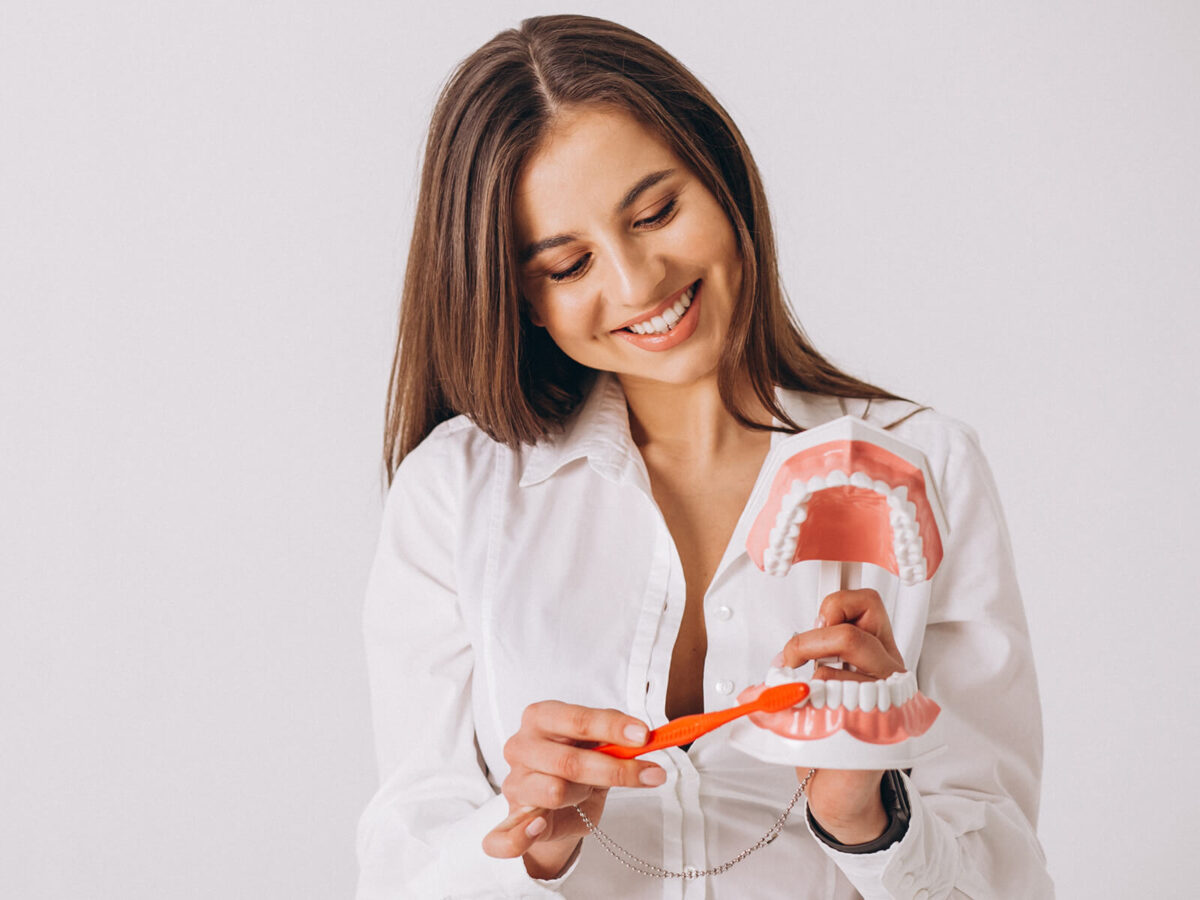Blog
Dental hygiene tips for healthy teeth & gums

Debunking Common Myths About Oral Health And Dentistry
Oral health is essential for overall well-being, yet many misconceptions about dental care persist· Believing in these myths can lead to poor dental hygiene practices and unnecessary anxiety about dental visits· This article aims to debunk some of the most common dental myths and provide accurate information to help you maintain a healthy smile.
Myth 1: Brushing Harder Cleans Better Fact:
Many people believe that brushing their teeth harder will remove more plaque and bacteria· However, aggressive brushing can damage your tooth enamel and irritate your gums, leading to sensitivity and receding gums· It’s best to use a soft-bristled toothbrush and gentle, circular motions to clean your teeth effectively.
Myth 2: Only Sugar Causes Cavities Fact:
While sugar is a significant contributor to cavities, it’s not the only culprit· Cavities are caused by bacteria in your mouth that produce acid when they come into contact with any carbohydrates, including bread, pasta, and fruits· It’s important to maintain good oral hygiene and limit snacking between meals to prevent cavities.
Myth 3: If My Teeth Don’t Hurt, They Are Healthy Fact:
Several dental diseases are often asymptomatic. Some of them include caries, periodontitis, and some forms of oral cancer· People should visit their dentists for checkups frequently since some of these issues may even be lifelong if not correctly diagnosed early· Preventive treatment is the order of the day; do not wait until you feel pain to visit your dentist.
Myth 4: Whitening Toothpaste Can Completely Whiten Your Teeth Fact:
Whitening toothpaste can help remove surface stains, but it won’t change the natural color of your teeth· For more significant whitening results, professional treatments provided by your dentist are necessary· Overuse of whitening toothpaste can also lead to tooth sensitivity and enamel erosion.
Myth 5: You Only Need to Visit the Dentist If You Have a Problem Fact:
Routine dental visits are essential for preventing problems before they start· Dentists can spot early signs of decay, gum disease, and other issues that you may not notice· Regular cleanings and exams help maintain your oral health and avoid more complex and costly treatments in the future.
Myth 6: Flossing Isn’t Necessary Fact:
Flossing is important since it helps remove plaque and food debris in regions the toothbrush cannot access, including between the teeth and beneath the gum line· Failing to floss will result in the development of gum disease and decay on the surface of the teeth that are in contact with one another. Flossing should also become a daily ritual as part of good oral health and hygiene practices.
Myth 7: Dental Treatments Are Painful Fact:
Advancements in dental technology and anesthesia have made most dental procedures relatively painless· Dentists are trained to minimize discomfort and provide a positive experience· If you’re anxious about pain, talk to your dentist about your concerns; they can offer solutions to help you feel more comfortable.
Myth 8: Baby Teeth Don’t Need Much Care Because They Fall Out Anyway Fact:
The temporary teeth are crucial as they help chew food well, speak, and hold the place for the permanent teeth· A common mistake parents can make is not paying enough attention to their child’s baby teeth· This means they are prone to decay, contributing to adult teeth’ growth and overall oral health· To make sure that your child maintains healthy teeth, make sure they start practicing proper dental care when they are young.
Conclusion
Understanding the facts behind common dental myths is crucial for maintaining good oral health· Regular dental visits, proper brushing and flossing, and a balanced diet are key components of a healthy smile· Don’t let misinformation guide your dental care practices; consult with your dentist to get accurate information and personalized advice· By debunking these dental myths, we hope to encourage better oral hygiene habits and reduce anxiety about dental care· Remember, your smile is worth taking care of!


